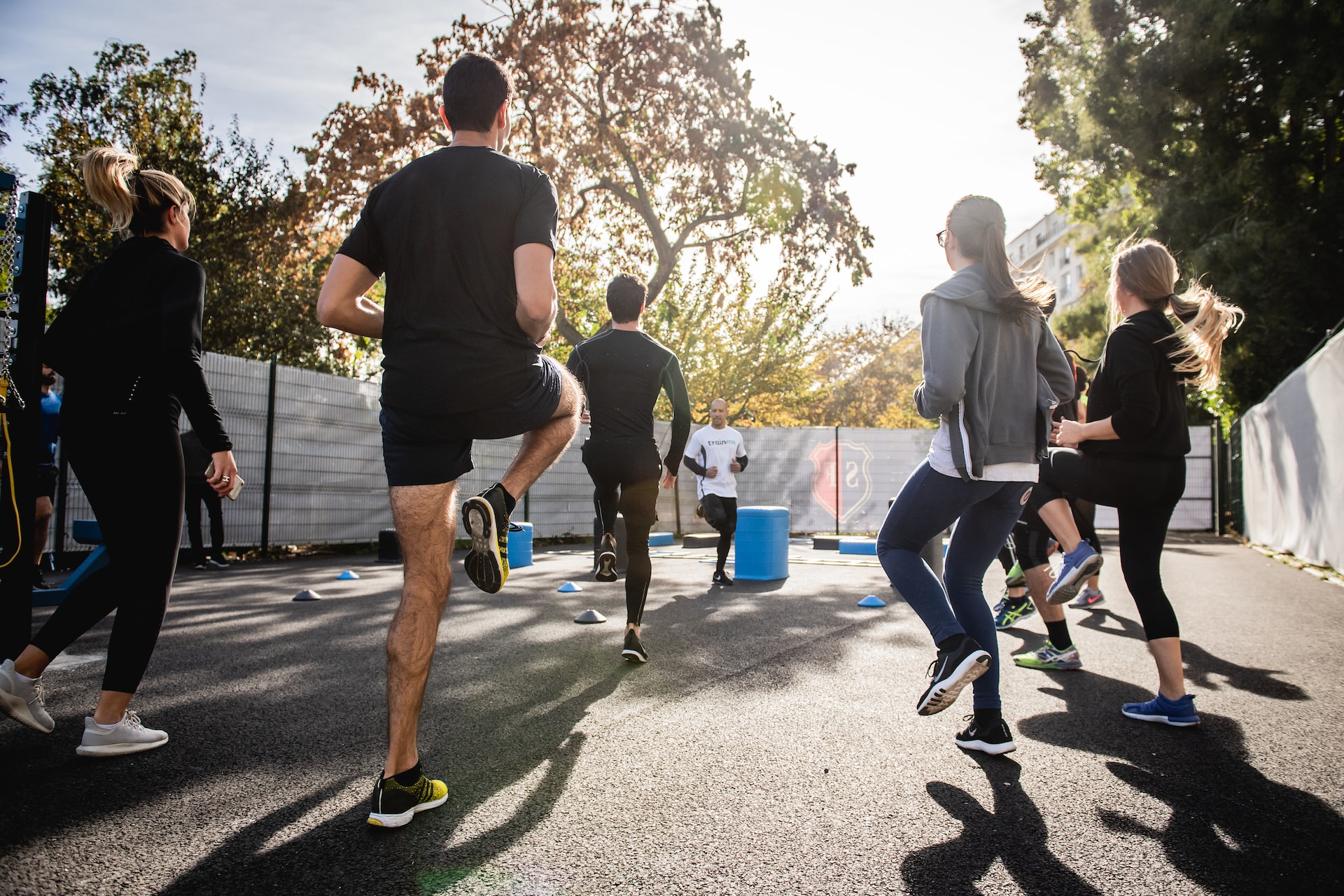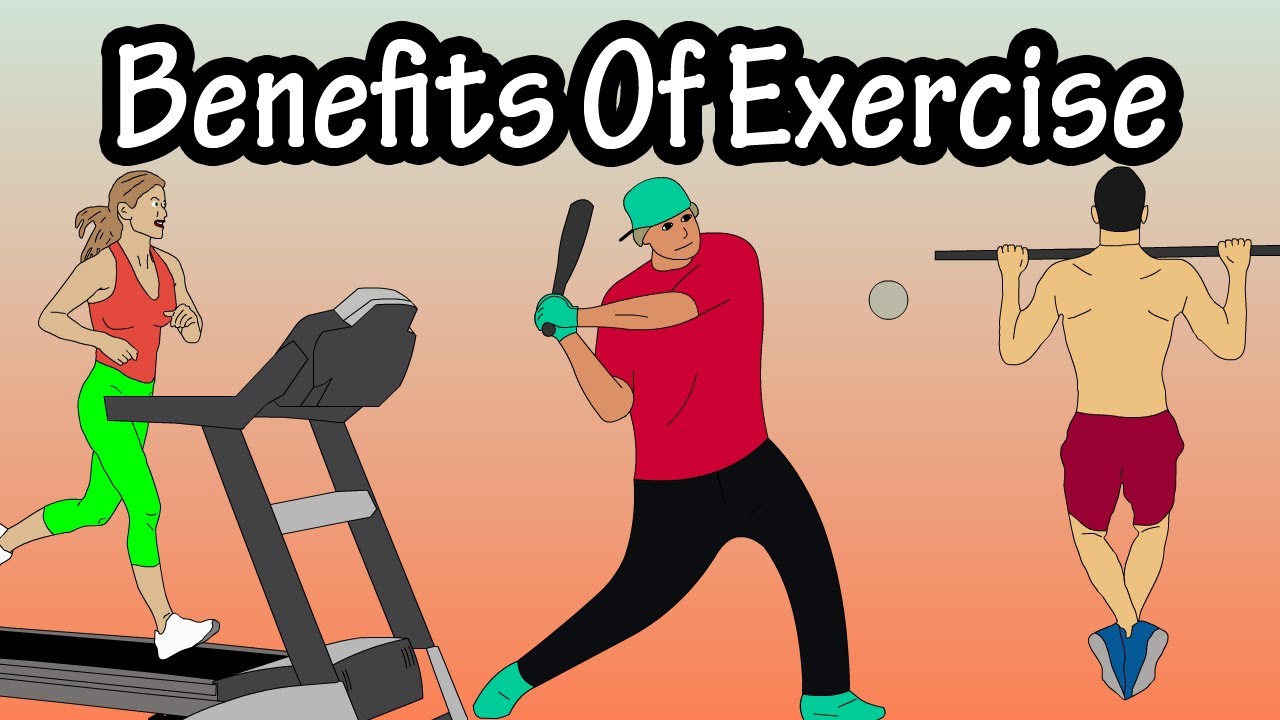The Benefits Of Regular Physical Activity For Health - Why Exercise Is Crucial For Well Being?
The benefits of regular physical activity for health are well-established, yet many individuals struggle to incorporate exercise into their daily routines. Regular physical activity has a lot of benefits, from lowering the risk of chronic diseases to improving mental health and well-being in general.
Author:James PierceReviewer:Karan EmeryMar 07, 20235 Shares301 Views

The benefits of regular physical activity for healthare well-established, yet many individuals struggle to incorporate exercise into their daily routines. From reducing the risk of chronic diseases to improving mental health and overall well-being, the positive effects of regular physical activity are numerous.
Engaging in moderate-intensity physical activity for at least 30 minutes a day, most days of the week, is recommended for maintaining good health. However, even shorter bouts of exercise can provide benefits, making it easier for individuals to fit physical activity into their busy schedules.
In this article, we will explore the various ways that regular physical activity can benefit overall health and well-being, as well as provide tips for incorporating exercise into daily life.

Physical, Mental, And Overall Health Benefits Of Regular Exercise - How Exercise Improves Health
Physical Health Benefits Of Regular Physical Activity
Regular physical activity has numerous physical health benefits, including:
- Reduced risk of chronic diseases: Regular exercise can help reduce the risk of chronic diseases such as heart disease, stroke, and type 2 diabetes. It can also help manage existing chronic conditions, such as high blood pressure and diabetes.
- Improved cardiovascular health: Exercise can help improve cardiovascular health by strengthening the heart and improving blood flow. It can also help lower blood pressure and cholesterol levels.
- Weight management: Regular physical activity can help maintain a healthy weight and reduce the risk of obesity.
- Increased strength and flexibility: Exercise can help increase muscle strength and flexibility, reducing the risk of falls and injuries.
- Improved bone density: Exercise can help improve bone density, reducing the risk of osteoporosis and fractures.
- Reduced risk of certain cancers: Regular physical activity has been linked to a reduced risk of certain cancers, including breast, colon, and lung cancer.
Overall, regular physical activity can have a significant positive impact on physical health and reduce the risk of numerous health conditions.
Mental Health Benefits Of Regular Physical Activity
In addition to physical health benefits, regular physical activity can have a significant positive impact on mental health. Some of the mental health benefits of regular exercise include:
- Reduced symptoms of depression and anxiety: Regular exercise has been shown to reduce symptoms of depression and anxiety, and can be as effective as medication or therapy for some individuals.
- Improved mood and overall well-being: Exercise can help improve mood and overall well-being, providing a sense of accomplishment and boosting self-esteem.
- Improved cognitive function and memory: Regular physical activity has been shown to improve cognitive function and memory, reducing the risk of age-related cognitive decline.
- Increased self-esteem and confidence: Regular exercise can help increase self-esteem and confidence, leading to a more positive self-image.
- Improved sleep quality: Regular exercise has been linked to improved sleep quality, which can have a positive impact on overall health and well-being.
Overall, regular physical activity can have a significant positive impact on mental health, improving mood, cognitive function, and overall well-being.
Recommended Amount Of Physical Activity
Generally, the following guidelines are recommended:
- Children and adolescents: Children and adolescents should engage in at least 60 minutes of physical activity every day, including both aerobic and muscle-strengthening activities.
- Adults: Adults should aim to engage in at least 150 minutes of moderate-intensity aerobic activity or 75 minutes of vigorous-intensity aerobic activity per week, in addition to muscle-strengthening activities at least two days per week.
- Older adults: Older adults should engage in regular physical activity that includes balance training and flexibility exercises, in addition to aerobic and muscle-strengthening activities.
It is important to note that any amount of physical activity is better than none, and individuals should aim to incorporate physical activity into their daily routine as much as possible.
Additionally, individuals with certain health conditions should consult with their healthcare provider before starting a new exercise routine.
Tips For Incorporating Physical Activity Into Daily Life
Incorporating physical activity into daily life can seem daunting, but there are many simple and easy ways to get moving throughout the day. Here are some tips for incorporating physical activity into daily life:
- Set realistic goals: Start by setting small, achievable goals for physical activity, and gradually increase the intensity and duration of exercise over time.
- Find an activity you enjoy: Find an activity that you enjoy, whether it’s a sport, dance class, or walking with a friend, and make it a regular part of your routine.
- Take active breaks: Instead of sitting at a desk for extended periods, take active breaks throughout the day, such as going for a short walk or doing some stretching exercises.
- Incorporate physical activity into daily tasks: Find ways to incorporate physical activity into daily tasks, such as walking or cycling to work, taking the stairs instead of the elevator, or doing household chores that require movement.
- Make it a social activity: Involve friends or family members in physical activity, such as going for a walk or playing a game of basketball together.
- Track progress: Keep track of progress and celebrate achievements along the way, as this can help maintain motivation and encourage continued physical activity.
Incorporating physical activity into daily life can have a significant positive impact on overall health and well-being, and these tips can help make it a regular and enjoyable part of daily routine.
People Also Ask
What Are Some Physical Health Benefits Of Regular Physical Activity?
Regular physical activity can reduce the risk of chronic diseases such as heart disease, stroke, and type 2 diabetes, as well as improve cardiovascular health and maintain a healthy weight.
How Can Regular Physical Activity Benefit Mental Health?
Regular exercise can reduce symptoms of depression and anxiety, as well as improve mood, cognitive function, and overall well-being.
How Much Physical Activity Is Recommended For Good Health?
It is recommended to engage in moderate-intensity physical activity for at least 30 minutes a day, most days of the week, for optimal health benefits.
What Are Some Tips For Incorporating Physical Activity Into Daily Life?
Some tips include taking the stairs instead of the elevator, going for a walk during lunch breaks, participating in group exercise classes, or cycling to work.
Can Shorter Bouts Of Exercise Still Provide Health Benefits?
Yes, even shorter bouts of exercise, such as 10-15 minutes at a time, can provide health benefits and improve overall well-being.
Final Words
The benefits of regular physical activity for healthcannot be overstated. Engaging in regular exercise can help reduce the risk of chronic diseases, improve mental health, and enhance overall well-being.
Incorporating physical activity into daily life doesn't have to be difficult, and can be done in a variety of ways, such as walking or cycling to work, taking the stairs instead of the elevator, or participating in group exercise classes.
By making small changes to daily routines, individuals can reap the many benefits of physical activity and improve their overall health and well-being.

James Pierce
Author

Karan Emery
Reviewer
Latest Articles
Popular Articles